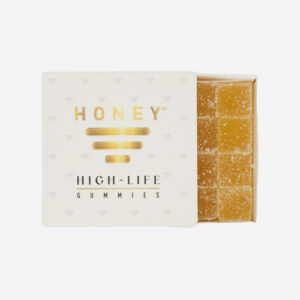THCa Products
What is THCa: The Ultimate Guide
Introduction to THCa
Tetrahydrocannabinolic acid (THCa) is a fascinating compound found in the raw cannabis plant. Unlike its famous cousin THC, THCa is non-psychoactive, meaning it won’t get you high. But why does it matter, and what can it do for you? Let’s dive into the world of THCa and uncover its secrets.
The Science Behind THCa
Chemical Structure of THCa
THCa is a cannabinoid, a type of compound unique to cannabis. Its molecular structure is similar to THC, but with a crucial difference that prevents it from binding easily to our brain’s receptors.
How THCa is Produced in Cannabis
Cannabis plants produce THCa in their trichomes, the tiny, crystal-like structures on their surface. THCa is the precursor to THC, transforming into the psychoactive compound when exposed to heat, a process known as decarboxylation.
THCa vs. THC: Understanding the Difference
Psychoactive Properties
The key difference between THCa and THC is their effect on the brain. THCa does not produce the psychoactive effects associated with THC, offering a way to enjoy the benefits of cannabis without the high.
Legal Status
The legal distinction between THCa and THC can be murky. In many jurisdictions, the focus is on THC content, potentially allowing THCa-rich products to exist in a legal gray area.
Health Benefits of THCa
Anti-Inflammatory Properties
Research suggests THCa has potent anti-inflammatory effects, making it a promising option for conditions like arthritis and lupus.
Neuroprotective Effects
Early studies indicate THCa may protect brain cells from damage, offering potential in treating neurodegenerative diseases.
How to Use THCa
Raw Cannabis
Consuming raw cannabis leaves and buds is the most direct way to ingest THCa, preserving its non-psychoactive properties.
Juicing
Juicing cannabis is another effective method for consuming THCa, mixing it with other fruits and vegetables for a nutrient-rich drink.
THCa Products
A growing market of THCa products, including tinctures and oils, offers concentrated forms of this compound.
Decarboxylation: Turning THCa into THC
The Process
Decarboxylation is the chemical reaction that removes a carboxyl group from THCa, converting it into THC. This occurs naturally when cannabis is smoked or vaporized.
Why It Matters
Understanding decarboxylation is crucial for consumers who wish to control their intake of THCa and THC, depending on their desired effects.
Legal Status of THCa
THCa occupies a complicated legal status, often dependent on local laws regarding cannabis. It’s essential to know your area’s regulations before purchasing or using THCa products.
Potential Side Effects and Risks
While THCa is considered safe and non-psychoactive, consuming large amounts or combining it with THC-rich products could lead to unexpected effects. Always start with small doses and consult healthcare providers if unsure.
Conclusion
THCa offers a unique set of benefits and applications, distinct from THC. Whether you’re interested in its therapeutic potential or simply curious about non-psychoactive cannabinoids, THCa is worth exploring. Remember, the key to cannabis is understanding and moderation.
FAQs
- Is THCa legal everywhere?
- The legality of THCa varies by jurisdiction. It’s often in a gray area, so check local laws.
- Can THCa get you high?
- No, THCa is non-psychoactive and will not produce a high unless decarboxylated into THC.
- How can I consume THCa?
- THCa can be consumed by eating raw cannabis, juicing, or using specific THCa products like tinctures.
- Are there any side effects of THCa?
- THCa is generally considered safe, but like any substance, reactions can vary. Start with small doses to gauge your body’s response.
- Will THCa show up on a drug test?
- Most drug tests screen for THC, not THCa. However, if THCa converts to THC in the body, it could potentially influence test results.

